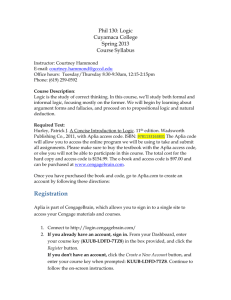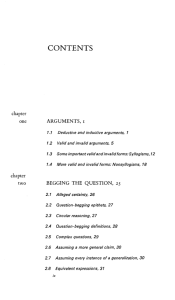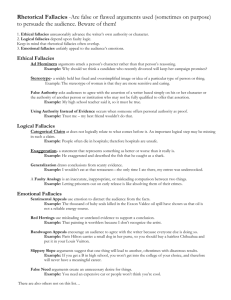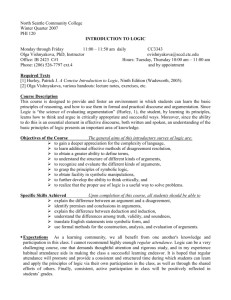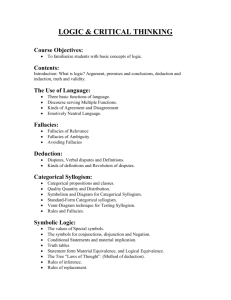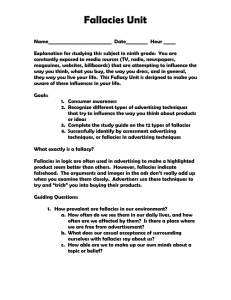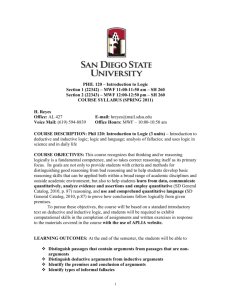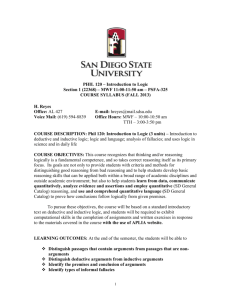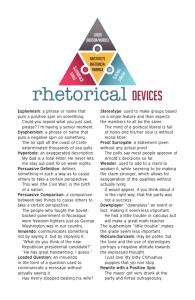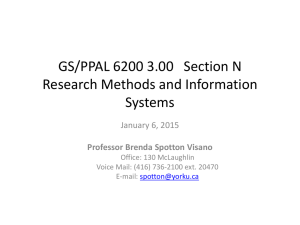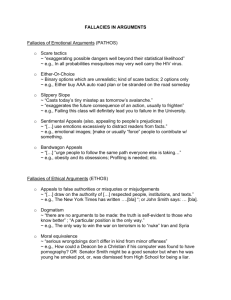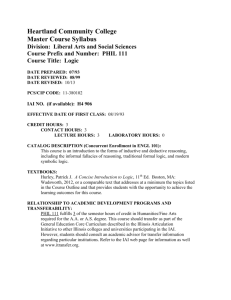Phil 110: General Introduction to Philosophy
advertisement
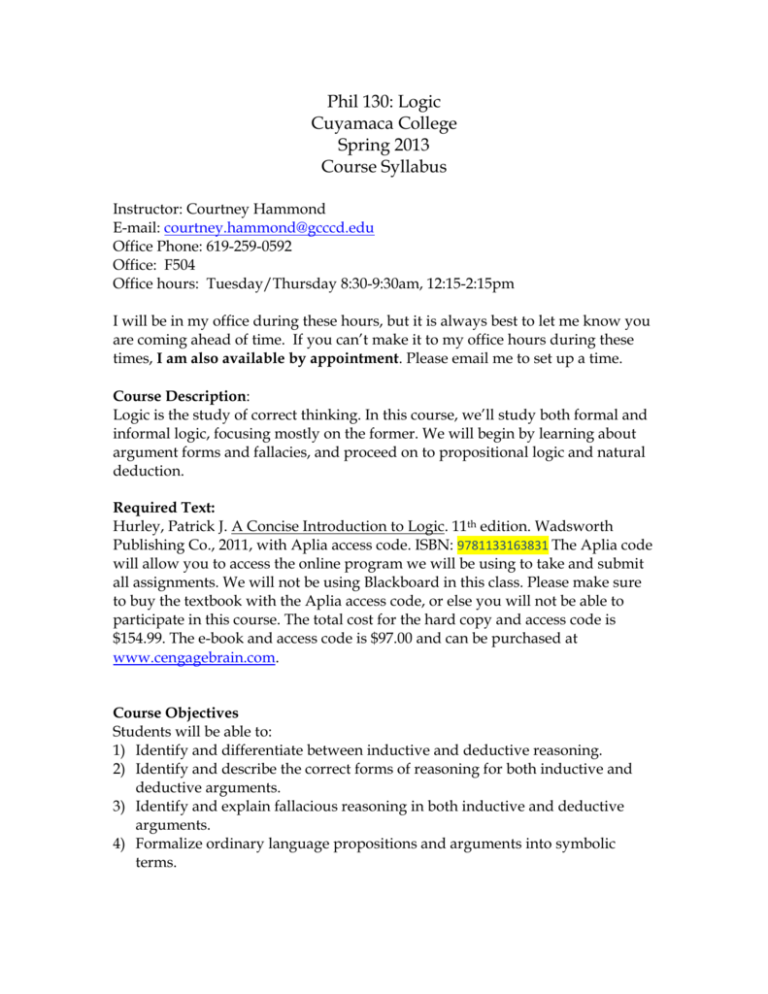
Phil 130: Logic Cuyamaca College Spring 2013 Course Syllabus Instructor: Courtney Hammond E-mail: courtney.hammond@gcccd.edu Office Phone: 619-259-0592 Office: F504 Office hours: Tuesday/Thursday 8:30-9:30am, 12:15-2:15pm I will be in my office during these hours, but it is always best to let me know you are coming ahead of time. If you can’t make it to my office hours during these times, I am also available by appointment. Please email me to set up a time. Course Description: Logic is the study of correct thinking. In this course, we’ll study both formal and informal logic, focusing mostly on the former. We will begin by learning about argument forms and fallacies, and proceed on to propositional logic and natural deduction. Required Text: Hurley, Patrick J. A Concise Introduction to Logic. 11th edition. Wadsworth Publishing Co., 2011, with Aplia access code. ISBN: 9781133163831 The Aplia code will allow you to access the online program we will be using to take and submit all assignments. We will not be using Blackboard in this class. Please make sure to buy the textbook with the Aplia access code, or else you will not be able to participate in this course. The total cost for the hard copy and access code is $154.99. The e-book and access code is $97.00 and can be purchased at www.cengagebrain.com. Course Objectives Students will be able to: 1) Identify and differentiate between inductive and deductive reasoning. 2) Identify and describe the correct forms of reasoning for both inductive and deductive arguments. 3) Identify and explain fallacious reasoning in both inductive and deductive arguments. 4) Formalize ordinary language propositions and arguments into symbolic terms. 5) Detect fallacies and evaluate the forms of argument used in newspaper articles, advertisements, scientific articles, etc. as regards their validity. 6) Use the rules of deduction to prove the invalidity of various arguments. Course Requirements 6 Chapter Exams (10% each), Homework and Participation (50%). I will drop your lowest test score at the end of the semester. Grading Policy A 93-100% A- 90-92% B+ 87-89% B 84-86% B- 80-83% C+ 77-79% C 70-76% D 60-69% F 0-59% **In general, late homework and make up exams will not be permitted. However, with proper documentation of illness or other extenuating circumstances, I will consider late assignments. Things like forgetfulness, stress at work and/or home, etc., do NOT count as extenuating—they count as life. Please don’t ask for exceptions in these cases. Most likely I will not respond since it only serves to make me feel guilty when I have to say no. Date 1/29 1/31 2/05 2/07 2/12 2/14 2/19 2/21 2/26 2/28 3/05 3/07 3/12 3/14 3/19 3/21 3/26 3/28 4/02 4/04 4/09 4/11 4/16 4/18 4/23 4/25 4/30 5/02 5/07 Topics To Be Covered Introduction to Course Chapter 1: Basic Concepts 1.1 and 1.2 1.3 Deduction and Induction 1.4 Validity, Truth, Soundness, Strength, Cogency 1.5 Proving Invalidity Chapter 1 Practice Test Chapter 3: Fallacies 3.1 and 3.2 3.3 Fallacies of Weak Induction 3.4 Fallacies of Presumption, Ambiguity, and Grammatical Analogy 3.5 Fallacies in Ordinary Language Chapter 3 Practice Test Chapter 4: Categorical Propositions 4.1 and 4.2 Quality, Quantity and Distribution 4.3 Venn Diagrams and the Modern Square of Opposition 4.4 Conversion, Obversion, and Contraposition 4.5 Traditional Square of Opposition 4.6 Venn Diagrams and the Traditional Square 4.7 Translating Ordinary Language Spring Break Spring Break Chapter 4 Review Chapter 4 Practice Test Chapter 5: Categorical Syllogisms 5.1 and 5.2 5.3 Rules and Fallacies “ 5.4 Reducing the Number of Terms 5.5 Ordinary Language Chapter 5 Practice Test Chapter 6: Propositional Logic 6.1 6.2 Truth Functions 6.3 Truth Tables for Propositions 5/09 5/14 5/16 6.4 Truth Tables for Arguments 6.5 Indirect Truth Tables 6.6 Argument Forms and Fallacies Chapter 6 Practice Test Chapter 7 Natural Deduction 7.1 5/21 7.2 Rules of Implication 5/23 7.3 Rules of Replacement I 7.4 Rules of Replacement II Extra Help: Any student needing extra assistance is urged to utilize the tutoring services available at Cuyamaca College. Therefore, to support your efforts to succeed in this class, I refer you to the Supervised Tutoring services that are available. Please refer to the schedule listing in the fall class schedule. All Supervised Tutoring sections are FREE to you. You need only enroll to receive services—no units or grades are given. The instructor reserves the right to make changes to this syllabus if necessary. This course adheres to the academic policies outlined in the 2011-2012 Cuyamaca College catalog.
